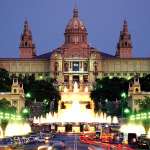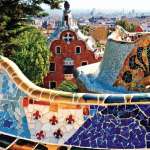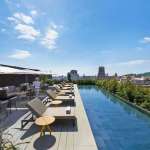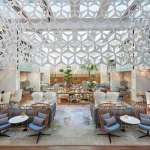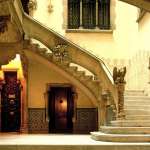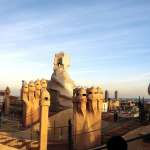Barcelona, the capital of Catalonia, is a Mediterranean and cosmopolitan city with Roman remains, medieval quarters and the most beautiful examples of 20th century Modernism and avant-garde. It is no surprise that emblematic constructions by the Catalan architects Antoni Gaudí and Lluís Doménech i Montaner have been declared World Heritage Sites by the UNESCO.
The city’s origins are Roman, and its long history and economic dynamism have made Barcelona a cultural city, which can be seen in the historic-artistic heritage and the promotion of the most innovative artistic trends. A wide cultural program will take visitors to museums, exhibitions, open-air sculptures… and many concerts, plays and dances.
The visitor will enjoy Barcelona’s Mediterranean character, which can be clearly felt on the Costa del Garraf as well as the Maresme coast. In addition, the city has beautiful urban beaches, marinas, and seafront golf courses. Nature lovers will not need to travel far to be able to hike through the hills that are part of the coastal mountain range and the Catalan Pyrenees.
History of Barcelona:

The origins of the city of Barcelona are unclear. In the 3rd and 2nd centuries BC, the area was settled by the Laietani, a Thracian -?berian people. Information about the period from 218 BC until the 1st century BC is scarce. We do know that around 15 BC the Romans redrew the town as a Roman military camp. The city was conquered by the Visigoths in the early 5th century becoming for a few years the capital of the whole Hispania. Afterwards it was conquered by the Arabs in the early 8th century, and then re-conquered in 801 by Charlemagne’s son Louis.
In the 12th century, Catalonia grew rich and eventually Barcelona ruled a mini-empire including Sicily, Malta, Sardinia, Valencia, the Balearics, the French regions of Rousillon and Cerdagne and parts of Greece. Barcelona started declining in the 15th century as the centre of political power became Madrid and the colonization of the Americas reduced the financial importance of Mediterranean trade. Barcelona suffered from the Catalan Revolt (1640–52), was hit hard by the great plague which halved the city’s population, and was ravaged by the Napoleonic wars. The postwar period saw the start of industrialization.
The resistance of Barcelona to Franco’s coup d’état was to have lasting effects as the autonomous institutions of Catalonia were abolished. Barcelona remained the second largest city in Spain having been industrialized. The result was a large-scale immigration from poorer regions of Spain, which in turn led to rapid urbanization. Barcelona hosted the Olympic Games in 1992, which helped revitalize the city.
View All Tours View Luxury Cruises View Unique Journey’s View Private Adventures View Custom Groups




